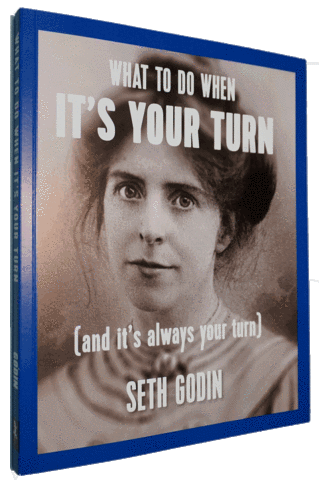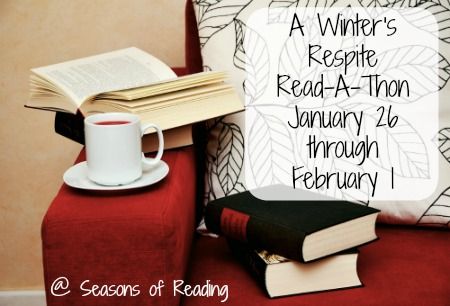I'm so pleased to have Tessa Arlen (author of Death of a Dishonorable Gentleman) on the Back Porch today for a little Q & A!
~~~oOo~~~
1 What attracts you to the Edwardian Age?
The first decade of the 1900s was a completely different world from ours today, but it is extraordinarily accessible. My great-grandmother was Edwardian and I remember her quite clearly. She was in her late seventies when I was a little girl, always immaculately turned out and she was a stickler for little things like good manners, ‘being as quiet as a mouse’ and washing your hands (a lot!). Research for the era is rich in so many available sources so it is easy to be well informed about the time. I particularly appreciate that the age seemed to abound in eccentrics, people with strong characters and forceful personalities. Edwardians conformed to social convention very thoroughly, but were often flamboyant in their individuality. It was also an age of great change in literature, the arts and the performing arts.
2. How was it living in all those countries at a young age?
Well it all seemed quite normal and every day to me! I had a very rich childhood, so far as memories go. Without divulging exactly how old I am, my parents lived in countries that have changed out of all recognition today from the way they were when I was a child. Beijing was fascinating when I was sixteen. The people all wore blue uniforms and biked everywhere or rode on the bus. A private car was a very unusual sight and usually belonged to a foreign diplomat or to several of the Chinese upper officials in government. The streets were lively and the old architecture with courtyard houses and moon-gates were everywhere (they have mostly gone now) and Beijing is an unrecognizable ultra-modern city. I even remember seeing elderly Chinese ladies with bound feet! Most Chinese from the country had rarely seen Europeans and were so curious about us, it was like being an alien!
I was born in the tropics, in Singapore and my parents returned there when I was eleven, it was a wonderfully vivid world to grow up in. When we came home on leave, and when I was put into boarding school in England when I was ten, I hated it at first. In comparison it was very proper and rather dull – I longed for school vacations when I could join my parents wherever they were in the world. I had developed a taste for all sorts of different foods, and found the lumpy mashed potatoes and overcooked meat and vegetables in England very depressing, that and all the itchy woolen clothes we had to wear in those freezing cold houses! The last posting I joined my parents in was India, by this time I was about eighteen and it was a wonderful place for me to explore.
3. What is one place in the world you would like to visit (that you haven't already)?
Japan. A friend of mine recently toured Japan and said the temples were exquisite! I love Japanese art and textiles and the culture has always been fascinating to me.
4. If you could invite any writer from throughout history to dinner and conversation at your house, whom would you choose and why?
What a great question! And how can I possibly answer it? I love so many writers. But I think as a dinner guest I would pick P.G. Wodehouse – though he does have a bit of a reputation for being a bit of a grump, he was also very funny and extraordinarily intelligent. I have been a lifelong fan of his – whenever I feel low I pick up a Jeeves and Bertie novel. My favorite Wodehouse quote is on writing. When asked how he went about it he said “I just sit down at the typewriter and curse a bit!”
5. How did the one character come to have a last name of Lambert-Lambert?
I am so glad you asked me this! I went to a very proper boarding school in England (not all of my childhood was larking about the world). One of my teachers was called Miss Lambert-Lambert. She was quite batty in a very nice way and I can’t remember what she taught – handwriting or something silly! She made us sit with our hands lightly clasped on the desk in front of us, so that we kept the energy circulating in our bodies! Can you imagine how much we giggled? She was very much a ‘spinster ‘of the old school, rather prim and very proper, she always wore a suit and blouse. When I was writing Lucinda’s character the name just popped into my head after all those years! Lucinda Lambert-Lambert has a good ring to it!
6. How was it working on the committee for the Los Angeles Olympics?
Horrible! It was my first job in America and I was very young and inexperienced and horrified at how early Americans went to work! At your desk at 8:00 a.m. seemed insane – in London we sat down to work at 9:30 a.m. had a full lunch at the pub and were leaving the office at 4:30 p.m. It was also an extraordinarily cut-throat environment – everyone was making a ‘career’ there. I worked in H.R. and interviewed my future husband for a job. He ended up as Venue Coordinator for the Rose Bowl for soccer which was a demonstration sport in ‘84. I think I fell in love with him immediately! Anyway, it was the longest interview on record in H.R., we had such a great long conversation and thoroughly enjoyed ourselves! When he came to work at the LAOOC we started dating. This was considered to be a ‘conflict of interest.’ by the Chairman Peter Ueberroth, which he told me quite clearly could lead to dismissal! Peter had the most spectacular temper and was quite a dramatist. He fired people at the drop of a hat. He used to say “This is a fast train and so and so just fell off.” Chris and I got married after the Games were over!
7. Any look ahead at the next book (since your website mentions a series)?
The next book A PARTY FOR WINSTON comes out January 2016. It features Lady Montfort and Mrs. Jackson in the Montfort’s London House in 1913. There is a birthday dinner party for the young Winston Churchill, and at that party something happens that causes the hostess colossal embarrassment; her house is in disarray and the following week she is throwing a huge charity gala at her house. Lady Montfort ‘lends’ her Mrs. Jackson to help organize things, and with Mrs. J. firmly planted in situ is able to unravel the mystery with her help.
8. Do you have any pets?
Yes, I have a pretty little Pembroke Welsh Corgi, she is very gentle and in her own quiet way quite a character. Her name is Daphne and she keeps my company when I write. I have a bad cat called Wulfi (who eats too much and who thinks he is a dog) and a good grey girl cat who never does anything wrong and her name is Biba. Daphne fully in charge of the cats.
9. Do you have any hobbies?
Yes! We live in the northwest with a climate very similar to England, and I garden. I love to garden. It’s perfect for writing because you can mutter away to yourself as you weed and dig, and organize things. I also love to cook! And of course like most writers I enjoy reading. I am never without two or three books all going at the same time.
10. What advice would you give young (student) writers?!
Read. Read widely. And read like a writer. This means read slowly and consciously as if you have written the book you are reading. Notice the writer’s style and what sets them apart from other writers. Critique everything you read. When you write, be courageous! Take risks. The more you write the better you will become. And if you want to be published never give up.
~~~oOo~~
This tour is still going on until February 6, so click the button to see the tour schedule and find reviews, more interiews, guest posts and giveaways!



























